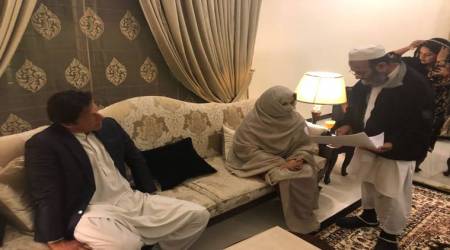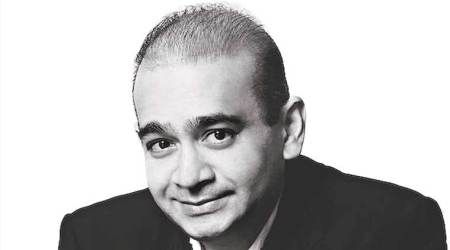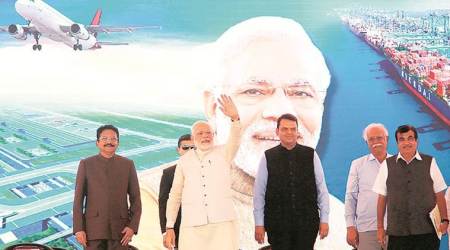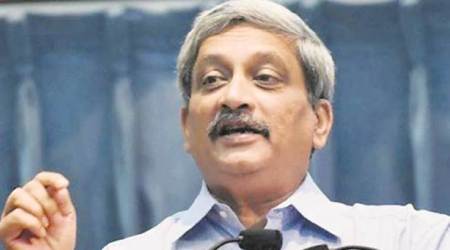 Independent nominee Rekha Rose Dukru. (Photo: Dipankar Ghose)
Independent nominee Rekha Rose Dukru. (Photo: Dipankar Ghose)
As a weak sun begins to peep out over the mountains, Pfutsero, Nagaland’s coldest and highest inhabited town, slowly begins to wake. Yet, even at 6 am, one home is a beehive of activity. Rekha Rose Dukru, 35, who is fighting her first election, has to leave early for a public meeting in a village three hours away. The obstacles in her path are many. She is contesting as an Independent, in a constituency that has four others from established political parties. But the biggest challenge, clearly, is that she is a woman. And therein lies hope for Nagaland’s women.
Nagaland has held assembly elections since 1963, but not a single woman has ever been elected to the 60-member House. Only once, in 1977, has a woman politician ever emerged victorious in an election, when Rano M Shaiza became a Member of Parliament on a United Democratic Party ticket.
Since then, even the number of women candidates has always been minimal. The 2013 assembly elections saw two women filing their nominations. “This year, there are five (of a total of 195 candidates), which is the highest number ever. Two are from the NPP, one from the NDPP, one from the BJP and one Independent. This is a good sign,” said Abhijit Sinha, Chief Electoral Officer, Nagaland.
Even to reach the nomination counter, Dukru had to fight a series of battles. Dukru went to school in Nagaland, studying in Pfutsero and then St Joseph’s College in Jakhama, before leaving the state to study journalism at St Alloysius College in Bengaluru. “I returned to do a PG Diploma from Nagaland University, which has a tie-up with the Indian Institute of Mass Communication and then got into my family’s integrated farming project. But I saw the state of affairs around me in the land which I hold so dear, and always wanted to be a politician. So in May 2017, I told my family I would contest,” she said.
Her immediate family was supportive. But her clan wasn’t. She was asked to wait till an elder politician from her village decided whether he would contest the polls again or not. Her extended family then began making phone calls, asking her to reconsider. Ignoring them, she filed her nomination as an Independent from Chizami constituency in Phek district. “They said, politics was no place for a youth or a woman. Even now, when they want to come and talk politics, they ask for my father, not me. That has to change,” Dukru said.
About 80 km and a three-hour potholed-road journey away from Pfutsero is Kohima, Nagaland’s capital. These fissures in society may be slightly blurred here, but they exist. While women throng the streets and cafes, a closer look reveals the divisions. Very few women drive, and most of the family-run retail shops have a woman or a child behind the counter.
“This stems from the divisions of labour in traditional Naga society. In the clans or village councils, the men were meant to fight and take political and strategic decisions. The woman’s role was economic, to tend to the farms, run a small shop, and then take care of the household. There is a difference between being protected and being respected. Have we ever asked ourselves how democratic was that society,” said Rosemary Dzuvichu, professor of English Literature at Nagaland University and a pioneer of the women’s movement in the state.
Dzuvichu, who is also adviser to the Nagaland Mothers Association, said that while customary laws and practices differ from one male-only village council to the other, with various customs and punitive measures, they all have one thing in common. “Naga customary law, because it differs from one village to the other, is difficult to codify. But all of them give no land rights to women. No inherited land can be passed down to women, and there is no space for women on the councils. Only now, has there been some allowance for acquired land, which means only girls from affluent families have any identity of their own. In case of divorce, for instance, the mother has to give the child to the father. The village judiciary is male-only, which means there is no real court of appeal. Many talk about our high literacy rate for women, which is above 70 per cent. But that is at the entry level. Nobody is looking at how many girls are dropping out. Agency is denied, and when it is fought for, resisted,” Dzuvichu said.
That is evidenced by the violence that broke out in Nagaland in early 2017 when the state government looked to implement 33 per cent reservation for women in urban body polls. Protesters, led by tribal groups and even civil society organisations, said this was a violation of Article 371(a) that protects Naga customary law. In the violence that ensued, two people were killed in Dimapur, Chief Minister T R Zeliang of the NPF had to resign, and buildings in Kohima were set on fire. Women candidates who had filed their nominations were forced to withdraw, some excommunicated, their homes ransacked.
Dzuvichu and Abeiu Meru, who filed an SLP in the Supreme Court in 2012 seeking implementation, were also threatened, and pressure put on them to withdraw their petition. The urban body polls haven’t been held since then.
And yet, in this assembly election, small cracks of hope are appearing in the patriarchal façade. Not only have five women candidates emerged, but political commentators have suggested that some may even win, pointing to Rakhila, BJP candidate from Tuensang II, and Awang Konyak, NDPP candidate from Aboi.
Dukru said she hopes to win by reaching out to women and the youth. “As much as 80 per cent of the constituency are women and youth. I talk to them about the corruption and money power all around, and tell them to give me one chance, and I will speak for both of them. If I don’t work, vote me out in the next election. And I believe I am making a difference in their thinking,” she said.
The signs of women beginning to claim their space are not just restricted to rallies and public meetings, but also the roads of rural Nagaland. The road between Pfutsero and Kohima has three checkposts, a bamboo pole tied across the path in each case. One of them is a Nagaland Police checkpost, where personnel pass a cursory look at the vehicle, and ask for an entry in a register.
The other two are manned exclusively by women, one of which has a banner on the side of the road which says “Chakhesang Mothers Association”. They ask occupants to step out of the vehicle, apologising for the inconvenience, before at least four women check the vehicle for bottles of liquor, distributed freely by politicians in male-only feasts in the run-up to elections. “This election has to be different,” said one woman.
As she sets off for what will be another long rocky day ahead, both literally and metaphorically, Dukru thinks of what she will say at the public meeting she is scheduled to attend, a common platform where she will share the stage with all the other candidates. “I tell them to take me seriously, and I use this example. Even if a male politician is not corrupt, he will only think about a black top road. It will only be a woman in Nagaland who will think about real upliftment… whether water is reaching homes, or if there is electricity in each house. The time has come for a woman’s voice to be heard in the assembly.”
For all the latest North East India News, download Indian Express App





























